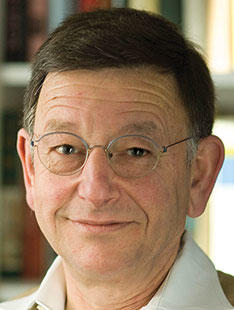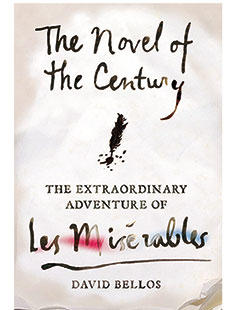
Les Misérables — the 19th-century French novel that inspired a Broadway hit musical and several film and television adaptations — has earned legions of fans for its impassioned story of an escaped convict and star-crossed lovers torn apart by a Parisian uprising. Those fans might be surprised to learn that the book’s author, Victor Hugo, was actually on the “wrong” side of the barricades. During the Revolution of 1848, Hugo was a member of the French parliament who commanded troops who fired on and killed revolutionaries barricading a street.
“That was one of the most painful and difficult moments in Hugo’s life,” says David Bellos, a French and comparative literature professor and author of The Novel of the Century: The Extraordinary Adventure of Les Misérables (Farrar, Straus, and Giroux), an epic retelling of the writing of Les Mis and its reverberations throughout history. “But he considered himself a man of duty — and he did his duty.”
At the time of that conflict, Hugo had written only the first third of the novel — ironically reaching the point in which the revolutionaries set up barricades during the much-less significant revolution of 1832. It took another 17 years to complete the book, which he finally did, in exile on the English island of Guernsey. “Finishing Les Misérables,” says Bellos, “was his way of coming to terms with his own actions in history.”

That is one of the surprising revelations in Bellos’ new book, which calls Les Mis the greatest novel of the 19th century. “It’s certainly got some great competition,” Bellos allows. But while books like Great Expectations and Moby Dick deal with individual conflict, and War and Peace reflects upon an aristocratic past, Bellos says, Les Misérables is the only novel to encompass the whole sweep of political and cultural changes occurring when it was published — including the stubborn persistence of poverty and revolution.
Duty looms large in Bellos’ analysis of the book. It is not so much “a reassuring tale of the triumph of good over evil, but a demonstration of how hard it is to be good,” he writes. The plot hinges on the promise by escaped convict Jean Valjean to raise the daughter of a fallen prostitute — all the while pursued by relentless Inspector Javert. “[Valjean] goes through enormous suffering to do something very simple,” says Bellos.
At the same time, Javert isn’t a one-dimensional villain, as he’s sometimes portrayed, but a tragic figure trapped, as Hugo was, in his unremitting duty to the law and his inability to allow for redemption. “The whole novel is to show that people aren’t born to be criminal,” says Bellos. “At the same time, Hugo doesn’t look to political action for solutions so much as individual acts of charity and generosity.”
That combination of individual duty and social consciousness has given Les Misérables a broad appeal. “It contains so much life, there is something for almost every reader to hang onto,” says Bellos. “Everyone wants to be on the side of les misérables.”
On the whole, Bellos isn’t keen on most of the modern theatrical retellings, which he finds lack the scope and nuance of the novel. At the same time, he asserts the novel remains hugely relevant for our times. Unlike most 19th-century novels, almost nothing feels dated or insensitive to modern audiences, he suggests. “I think it’s quite important in the 21st century to remember that the worldview of a guy like Javert, who only sees good guys and bad guys, is untenable and intolerable,” says Bellos. “Perhaps it is the novel for our century as well.”











1 Response
Norman Ravitch *62
8 Years AgoIt is not true that the...
It is not true that the revolution of 1832 was less important than that of 1848. In 1832 the intransigent Charles X of the Bourbon dynasty was overthrown; this was the reaffirmation of the original French Revolution. He was replaced by a distant cousin, Louis Philippe, of the Orleans family and was more or less a constitutional monarch and a liberal. The 1848 revolution was the overthrow of this monarch and replacement first with a dangerously leftist republic, which gave way in a couple of years to the dictatorship of Napoleon III. A France that could have remained a constitutional monarchy as laid out in 1832 would have made France more like Britain. That is to say, much better! Victor Hugo was one of the most-read and least-accomplished writers in France, a mediocre novelist and poet, a mediocre participant in politics, and all around a typically useless French intellectual.